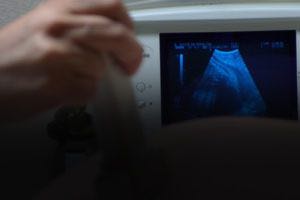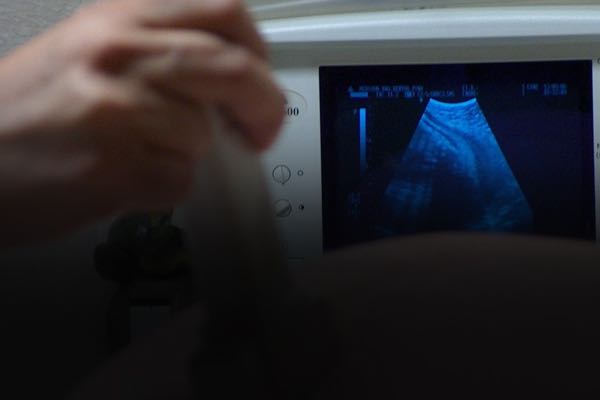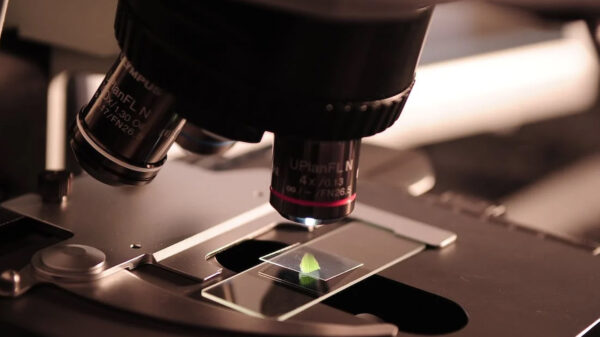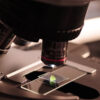
Crime scenes aren’t the only locations that have benefited from scientific advances. Technology is also making it easier to identify fetal humans in the womb. In a recent article in The Atlantic, journalist Emma Green reported that pro-life advocates “are tracking new developments in neonatal research and technology – and transforming one of America’s most contentious debates.” She’s right. When trying to answer the critical question, “What is a fetus, and when (if ever) is it human?” science can now help provide us with an answer, using many of the same categories of forensic technology I’ve used at crime scenes:
DNA Evidence
We now know that from the moment of conception, the resulting fetal human has a unique DNA, distinct from the mother and father. This DNA will not change as the fetal human continues to age over the course of his or her life, and the unique nature of the DNA identifies the baby as a member of the human species immediately.
Fingerprint Evidence
Fingerprints begin to develop relatively early in the life of fetal humans. Pads (bumps) form on the baby’s fingertips and palms within 6 to 13 weeks of conception, and as early as 10 weeks, these pads begin to develop the epidermal ridges destined to become fingerprints. From the very beginning they are unique to each fetal human, and by 21 to 24 weeks they will possess their final, mature form.
Video Imaging Evidence
4D ultrasound technology now allows us to reproduce a moving image of fetal humans in the womb. Using sound waves, it creates a series of three-dimensional images resulting in what looks like a live video. The clarity of these video images is remarkable, showing every movement and feature of the baby – in real time. When jurors watch a video taken at a crime scene, it’s far easier for them to identify the suspect. When watching 4D ultrasound videos, it’s far easier to identify fetal humans as… humans.
I’ve investigated cases involving strong DNA and fingerprint evidence. This evidence helped me determine that the suspect was human, and then ultimately identified which human was my suspect. Despite their value, however, I discovered during the criminal trial that the DNA and fingerprint evidence wasn’t nearly as persuasive as video evidence of the suspect committing the crime. For jurors, seeing was believing, and the clearer the video image, the more likely the jurors were to recognize and identify the suspect.
In a similar way, 4D ultrasound technology will almost certainly have a profound and persuasive impact in “one of America’s most contentious debates”. While DNA and fingerprint evidence can help us identify the “fetus” as a unique human being, it won’t likely be as persuasive as the video images. In a variety of studies, women who viewed grainy, poor quality, two-dimensional images of their babies were more likely to see them as living human beings and less likely to terminate their pregnancy. Imagine the impact 4D ultrasound technology will have. For these prospective mothers, seeing may be believing, and the clearer the video image, the more likely they may be to recognize their babies… as babies.
That’s why scientific and technological progress is indeed a friend of homicide investigations and the pro-life movement.
(This article first appeared at the Christian Post as: Cold-Case Detective Says Science Confirms That a Fetus Is Human)

J. Warner Wallace is a Dateline featured Cold-Case Detective, Senior Fellow at the Colson Center for Christian Worldview, Adj. Professor of Christian Apologetics at Talbot School of Theology, Biola University, author of Cold-Case Christianity, God’s Crime Scene, and Forensic Faith, and creator of the Case Makers Academy for kids.
Subscribe to J. Warner’s Daily Email
J. Warner Wallace is a Dateline featured cold-case homicide detective, popular national speaker and best-selling author. He continues to consult on cold-case investigations while serving as a Senior Fellow at the Colson Center for Christian Worldview. He is also an Adj. Professor of Christian Apologetics at Talbot School of Theology, Biola University, and a faculty member at Summit Ministries. He holds a BA in Design (from CSULB), an MA in Architecture (from UCLA), and an MA in Theological Studies (from Gateway Seminary).






































